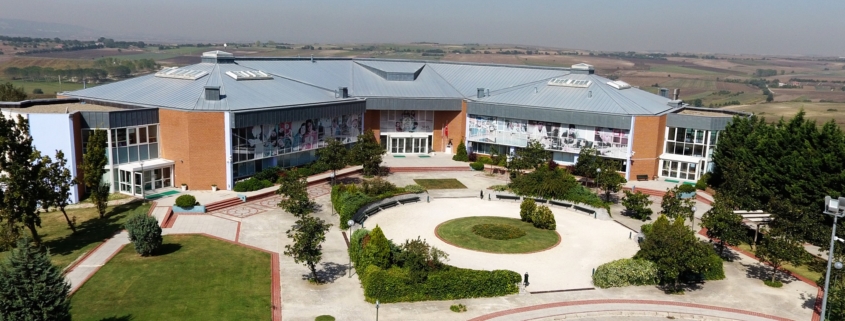The Parent Expectations of a New Normal in Admissions
OpenApply
The challenge globally
Schools internationally have seen significant changes as a result of COVID-19’s effect on families around the world.
Firstly, the switch to online learning and virtual engagement within a school’s existing community was the primary concern, but then schools realised that all their other processes had to change to fit in with their aims of student recruitment. Their other processes needed to be modernised to better support families responding virtually or remotely.
What are parents expecting next from a school? How does it give schools a competitive edge?
Manual admissions processes are very reliant on being responsive to the enquiries and applications that come in. Qualifying and verifying the validity of each, only to then ask parents to complete the next set of instructions and return them, typically before a deadline. In these cases, data needs to be processed, responses need to be verified and then sent to the parents. The pace of the admissions process is very reliant on the time between email exchanges, with data entry in between. Therefore engagement with parents is very limited and the time spent dealing with parents is limited to completing administrative steps for the majority of registrants. For some admissions teams, this is the status quo and it is a reactive workflow between them and the parents.
Where does engagement take place? When do meaningful discussions happen?
School visits were the norm and Open Days were a sacred event in a school’s calendar. Typically they were in a similar format every year to meet the school’s aims and objectives in engaging with prospective parents. They responded with the switch to virtual tours and making these events a virtual “experience” for families. We have heard and seen a number of exciting and fantastic developments on the traditional formula.
However, these interactions are still limited to only those that are able to book on for some form of tour (in person, virtual or a blend). So if a school is not able to support their processes with the usual ways of creating parent engagement and effective customer service then their recruitment is likely going to be affected.
Data, Planning and the New Expectations
So what are some schools doing differently?
Some of the recent changes we have seen:
- International schools have had to manage the difficulties of forecasting during COVID-19 this academic year. To deal with this a number of schools took a more empathetic and parent-centric approach by using an “unsure” response in their re-enrolment forms. They could then go on to ask parents for an approximate timeline. This already can mean such a big deal to a parent. Offering some flexibility while also gathering all the necessary information and approximate timings was able to provide some clarity, as opposed to only having a binary yes or no response.
- At the American International School of Bucharest, they found that being aware of their parent’s situations and keeping in touch with them regularly was key to the process. This then gave them the ability to have as much necessary information as possible to gauge and report often on with a range of scenarios from a minimum, to a medium and a maximum.
- The team at Kingston Grammar School, in the UK, found that the switch to an online admissions system allowed the skill-set of the admissions team to evolve based on how they are responding to the situation to suit the new norm. This could be being a ‘producer’ of school marketing content, or in creating engaging family experiences, such as a virtual school fair with live videos, recorded talks and students participating in a virtual scavenger hunt with sticker books posted in advance to their home addresses.
- The team at Lincoln Community School, for example, used feedback surveys to help steer improvements in their online learning for their current families. The benefit being net improvements to their distance learning format but also to parents allowing them to be engaged stakeholders in the advancement of the school’s processes. This will also set the expectations for any future changes and demonstrate credibility that the school can meet the next challenges
- Another example is the team at the American Embassy School, of New Delhi, collecting Net Promoter Scores, measuring engagement within their own school community. While this particular case was not implemented as a response to the coronavirus pandemic, it also allows the team to track engagement within their community for the future.
- Some schools have simply shifted their tours to personal Zoom discussions that can be booked much more frequently, with a colleague walking around the school on a virtual tour.
A New Normal
Schools are already recreating and modernising their admissions process online, enabling them to gather more data and engage in new ways. Data entry, document submissions and key steps are being completed by parents allowing for the customer to take part fully with the process, be nurtured through their own ‘personalised admissions portal’ and complete items at their own pace. Admissions teams are then reallocating time to pursue personal interactions with parents, have oversight of their entire admissions pipeline and be able to proactively identify ways to improve student recruitment. Monitoring the relationship with parents and having data supports a school in monitoring engagement.
Schools have then seen other positive changes to the parent experience, that are not as obvious.
There is no post or ‘email processing lag’ with online processes, meaning that admissions teams are setting better expectations and are in a stronger position to say the responsibility is on the parent’s to submit documents/forms by the deadline. It removes the age-old excuse of blaming the ’UK Royal Mail’, or “It’s in the post…” and how does a dog eat an online form and prevent it from being submitted…
Ultimately parents are responsible for being able to complete steps at a time of their choosing and their next steps or forms can be waiting for them in their parent account well in advance of the deadline. Meanwhile, communication to parents is centralised onto a student’s profile, providing further layers of support to busy admissions teams.
Schools have also seen that the parent journey has shifted. With parents accessing their own admissions dashboard they can work autonomously. They are not waiting for someone to process their data or respond to their email confirming receipt. There is a green tick showing completion, and from our own experience in admissions, generally, the majority of parents just want to get the necessary steps completed. Schools are encouraging them to complete the steps proactively. Making it easy and most importantly, making the process transparent and digestible for them. Which has streamlined their experience.
Parents recognise that they are responsible, and school teams support them with any help they need, communicate with them and provide ways for parents to engage with their prospective school in an organic way. This is where the responses are able to be more meaningful and better connections are made with prospective parents in the admissions process, leading to a potential increase in conversion and reconversion.
Therefore, setting new expectations and creating new processes during the admissions journey reflects positively on a school. Where parents are given even more confidence that the school can respond to changes beyond their control. Meanwhile, schools are gathering any and all data they need to prepare for their ‘Plan A, B to Z’ action plans as they work towards their own admissions timeframes. Responding with agility requires planning and for effective planning, you need good data and an effective, transparent communication strategy.
With those you can identify trends, keep abreast of changes and react accordingly in the face of future uncertainty and parents will engage positively and be reassured that the school can respond with aplomb.
The Future
So school processes are already different from last year’s. In the future, how are admissions teams going to respond to the next set of challenges affecting us?
COVID-19 has been such a dynamic situation with schools and families being affected internationally in so many ways. However, from an admissions point of view, this is probably one of the most exciting times for admissions teams as there is precedence to show that creative new ideas in the admissions process are having tangible positive results on student recruitment and in engaging with prospective parents.
What schools are doing is demonstrating their aims of advancement for the betterment of their community, into and throughout their time in the school. Taking time establishing your parent’s expectations of your admissions process and reviewing methods of managing relationships, with data to support those decisions. With adequate planning and the relevant information, this is an excellent opportunity to reimagine processes and focus on what is important: the parent’s customer journey. Improving on these processes allows your team to respond back to any new challenges that present themselves in the future.
Featured image (OpenApply case study/ECIS Member School): Istanbul International Community School
What do you think about the points raised in this article? We’d love to hear your thoughts below.
ABOUT OPENAPPLY

From MacKenzie Hovermale, OpenApply Director
In 2013, we launched OpenApply to support international schools in their transition from paper to provide an integrated, seamless online admissions & enrolment system.
Our mission was two-fold: firstly to build out a comprehensive, flexible and feature-rich system extending our experience in serving over a thousand international schools with ManageBac, and secondly to fill a professional development gap by publishing the International Admissions Bulletin and organising conferences around the world for admissions officers to share best practices and enhance collaboration.
This approach of Systems + Professional Development best reflects our long-term commitment to serving the needs of international schools.





Leave a Reply
Want to join the discussion?Feel free to contribute!